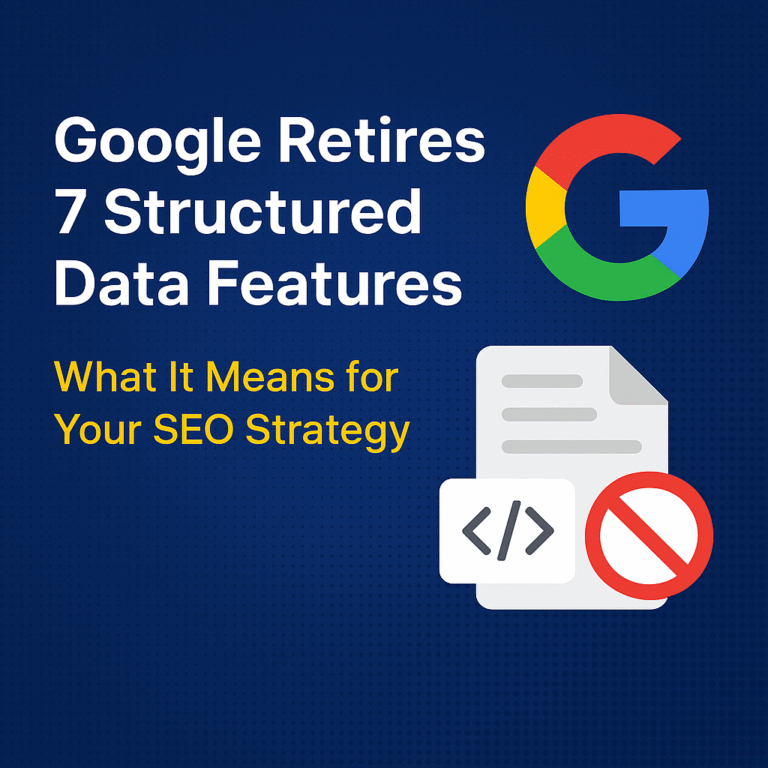Google Retires 7 Structured Data Features: What It Means for Your SEO Strategy

Google Streamlines Search: 7 Structured Data Features Retired
What Structured Data Features Were Removed?
In a significant move, Google has officially retired support for 7 structured data features. This change is part of Google’s effort to simplify its search systems and shift toward a smarter understanding of content through intent and context. The update was confirmed on June 10, 2025, via Search Engine Journal.
Let’s break down what this means for SEO professionals, marketers, and content creators.
Here are the seven structured data types that will no longer be used in Google Search results:
-
Book Actions – Enabled purchase/preview buttons for books directly in search.
-
Course Info – Displayed course details such as title, provider, and instructor.
-
Claim Review – Highlighted fact-checking content and verification status.
-
Estimated Salary – Showed salary range info for job listings.
-
Learning Video – Enhanced educational videos with structured learning info.
-
Special Announcement – Used during special events (e.g., COVID-19 alerts).
-
Vehicle Listing – Provided rich details for car listings, including specs and pricing.
These features, though once useful, have seen a decline in visibility and usage in recent search results.
Why Google Made This Change?
Google aims to streamline the display of content and reduce dependency on structured data types that are no longer essential. The company is increasingly relying on advanced AI models to understand context, intent, and relevance—without needing extensive markup.
This marks a growing shift toward semantic SEO, where the quality and relevance of your content outweigh purely technical SEO tactics.
What Is Semantic SEO?
Semantic SEO focuses on the meaning behind search queries and the relationships between topics, entities, and user intent. It goes beyond keywords and markup to deliver content that genuinely answers user needs.
Google’s algorithms now analyze how concepts connect, rather than just matching exact terms.
What You Should Do Now?
-
Focus on Intent: Write content that clearly satisfies user search intent.
-
Cover Topics Deeply: Use semantic relationships to build topical authority.
-
Don’t Over-Rely on Markup: Use structured data when relevant, but prioritize natural language and value.
-
Keep User Experience First: Fast, useful, and easy-to-navigate content always wins.
This update is another step toward a smarter, more human-like Google Search experience. For marketers, it’s a call to align with user-first, content-rich strategies. Structured data still plays a role—but it’s no longer the hero.
Want help building a semantic SEO strategy that works in 2025 and beyond?
Contact me at vms-marketing.com for expert SEO services in dubai.
#SemanticSEO #GoogleUpdate #DigitalMarketing #SEO2025
